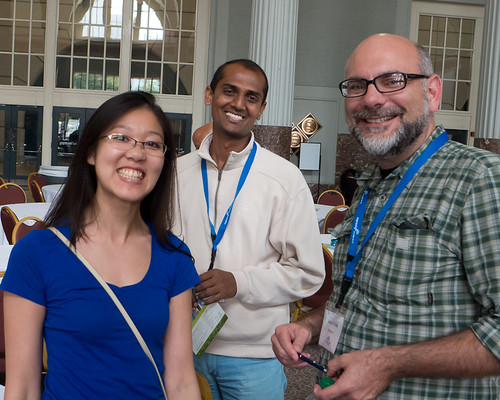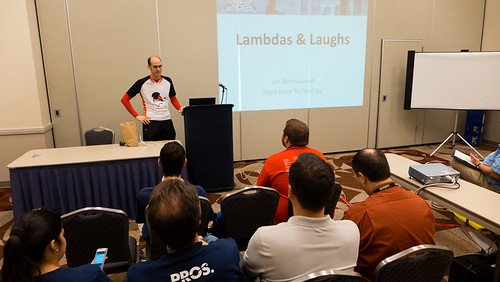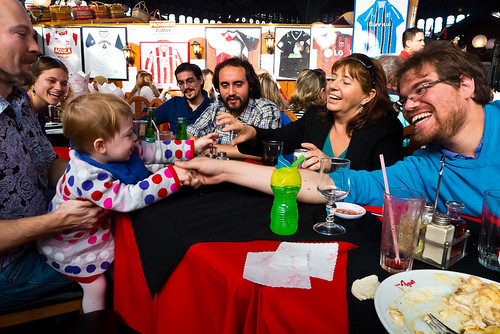People as species have evolved in social groups, cooperating and competing. Simply sharing a space helps to build trust, create a body of shared knowledge, establish social customs. Patriotism, love and pride for one’s land, interest in tails of the forefathers are all feelings that knit together a community of people that live and interact in close proximity.
But when it comes to interacting with people from far away, the situation is different. Historically, people living afar have been perceived as either villains or gods. People who are not participating in every day events in person, if they are not completely disregarded, appear weird, scary, and are ascribed bad thoughts and behaviors. Tribes everywhere are known to have fought long-lasting wars with neighbors living just far enough to not be part of the community.
The entire human history has prepared us to like and trust those close to us, and expect bad things from people who we cannot see, hear, touch and smell. We may not be consciously aware of this bias, but it is impossible not to notice its consequences. Long-distance relationships have a dramatically lower rate of survival, compared with relationships where partners see each other regularly. Most business activity still happens locally, within a single geographic area. Despite the televised debates and online advertising, politicians still fight and win elections by talking to voters on the campaign trail, and building organizations of supporters to do that on candidates’ behalf.
When an organization is working with a remote team, the people on that team are outsiders, not part of the tribe. Remote team members, unable to participate in daily face to face interactions, are subject to all the suspicions and biases outsiders have suffered throughout the human history. To create trust and build good working relationships all sides must work against their natural instincts of distrust toward outsiders.
There are many things that could help make the remote team a part of the inner circle. It could be as simple as giving a voice on the phone a benefit of the doubt – and a chance to explain in greater details how they came up with the ideas being presented. Or as complicated as organizing regular trips to a common location, to let people spend time together, working face to face. Whichever way is chosen, it is still hard work, requiring intelligence, an open mind, and willingness to learn.




